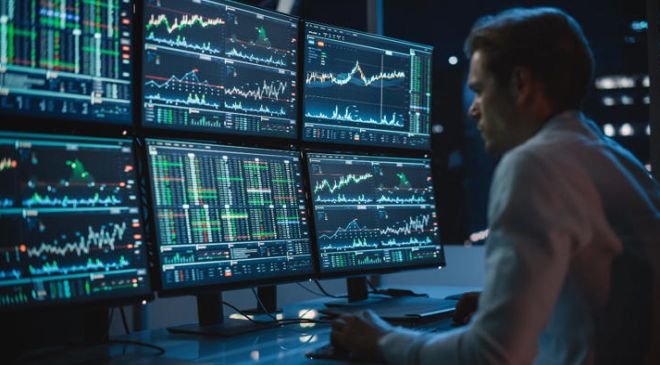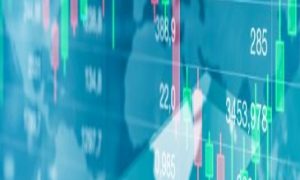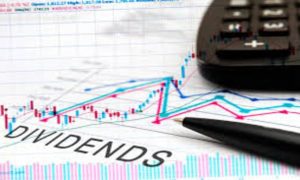What is forex trading?
Forex trading is essentially trading currencies. The process involves simultaneously buying one currency while selling another in the hope of profiting from the changes in their relative values. It is also known as foreign exchange trading or FX trading.
Read More:-6 Reasons You Need a Credit Card
Forex trading is one of the most actively traded markets in the world, with around $6.6 trillion worth of transactions every day.
Read More:-6 Reasons You Need a Credit Card
Dealing in this huge market was previously exclusive to banks and large financial institutions but recently more online trading platforms have opened up forex trading to individuals interested in currency trading.
Currencies are listed on trading platforms with three-letter codes. For example:
Read More:-Should You Have More Than One U.S. Passport?
- Pound sterling – GBP
- US dollar – USD
- Euro – EUR
- Japanese yen – JPY
How does forex trading work?
Forex trading is the process of anticipating and capitalising on currency value shifts. You are trading with a pair of currencies – you are always buying one currency while you sell another. The market price tells an investor how much of one currency is required to purchase another.
Read More:-Supreme Court May Have The Opportunity To Overturn Yet Another Legal Attack On Trump
For example, an investor could buy the euro and sell the US dollar on the view that the euro will strengthen against the US dollar. If your prediction is correct, you can sell the euros later at a higher price.
The “spread” in forex trading is the difference between the buy and sell prices. For example, the buy price might be 1.2345 and the sell price might be 1.2350. To make a profit, the market price needs to rise above the buy price of the currency you are buying. So, the difference between your entry and exit prices determines your profit or loss.
Read More:-Trump blasts GOP, McCarthy over debt ceiling
Largely, forex trading is used to profit from changes in the exchange rate between two currencies. Traders also look to trade currency pairs for the interest rate differential, earning interest if the currency bought has a higher interest rate than the currency sold, otherwise known as a “carry trade”.
What are the pros of forex trading?
Market volume: Forex trading is one of the most actively traded markets in the world, with the largest daily trading volume on a global level. It therefore has high levels of liquidity, which enables investors to easily enter or exit positions – in the major currencies – in seconds.
Market accessibility: The forex market is open 24 hours a day, five days a week. The major forex market centres are in Frankfurt, Hong Kong, London, New York, Paris, Singapore, Sydney, Tokyo and Zurich. The trading day starts in Sydney and ends in New York.
Read More:-NASA Is Watching a Vast, Growing Anomaly in Earth’s Magnetic Field
Short-term gains: Correct predictions on forex trading can lead to starting capital rapidly multiplying. The average profit of an experienced forex trader with an effective risk management plan is 2-4pc a month.
Lower minimum investment: Compared to other forms of trading, forex traders can start off with a modest lump sum of capital.
Less chance of insider trading: For major currency pairs, there is less chance of forex markets being affected by factors such as insider trading. However, it can still occur in forex markets.
What are the cons of forex trading?
Complexity: One of the main obstacles to profit-making for individual investors in forex markets is the complexity of the different trades and the various factors that can influence a rise or a fall. Forex trades are affected by interest rates and central bank policies, economic indicators such as inflation or growth, political events, general market sentiment and appetite for trade. Traders need to be able to analyse economic data and understand how the above factors can affect market sentiment and different currency trades.
Psychologically taxing: As well as the complexities outlined above, forex traders also need to consider how they monitor their trades, which can be quite challenging given the day-long trading, five days a week.
Traders will need to think about whether they are holding on to a position for too long, or closing a trade too early, while also trying to avoid making impulse decisions based on a snap market reaction.
Transaction costs: At the outset, transaction fees can look minimal in forex trading when compared to trading in other markets. However, frequent traders will find these small costs can add up and must be considered.
High risk: As with all investments, there are risks to forex trading. Some are common but there are a few unique to this type of trading. Firstly, currency brokers tend to allow banks and large financial institutions to leverage their forex trades – this can amplify their gains but also increases the risk of very large losses.
Further, scammers are prevalent in forex markets due to the decentralised nature of the regulation, which can vary widely from each trading jurisdiction. Scammers have set up Ponzi schemes or created a false sense of urgency to entice traders. For example, they will claim there is limited supply to encourage traders to go ahead with the transaction or offer a discount if the trade is carried out immediately.
Forex trading strategies
Individuals need to consider the best trading strategy for their timeframe, risk appetite, position and ability to exit a trade. It is worth noting that a shorter timeframe in forex trading can range anywhere from one minute, to five, 15 or 60 minutes, whereas a longer timeframe can span a few hours to daily, weekly or monthly.
Spot trading: This is the trading of currency pairs at the current market price with no fixed expiry.
Currency forwards: Investors can trade forex pairs at a specified price to be settled at a future date or range of dates.
Currency options: Offering a little more flexibility, traders have the option to buy or sell a currency pair at a set price within a set time frame but are not obliged to do so.
Scalping: Very short-lived trades held for just a few minutes to quickly beat the bid/offer spread and “scalp” a few points of profit before exiting the strategy. This is considered advanced forex trading.
Swing trading: Trades are held for several days but checked every half hour or hour, with the trader aiming to profit from short-term price rises or dips.
Position trading: Where traders are following a long-term trend and are looking to gain from major shifts in price. This strategy requires patience and discipline, and a good understanding of market fundamentals.
Which currency pairs can I trade?
Investors often find they can trade any currency pair. Trades are only limited by the pairs and quantities offered on your platform of choice.
The major currencies are the most traded pairs in the forex market, for example:
- EUR/USD
- GBP/USD
- USD/JPY
Each currency pair behaves differently and has its own pros and cons.
The EUR/USD pair is the most liquid and has tight spreads, making it a good option for beginners, while GBP/USD, also known as “cable”, tends to be a more volatile pair and requires higher margins, suitable for more experienced traders.
Read More:-‘Amex, Chase & Bank of America face backlash for quietly making huge change to credit cards
Forex trading FAQs
Are forex markets volatile?
Yes, they are volatile and that is one of the reasons traders use currency markets to profit from the fluctuations. Forex trades are easily influenced by economics, interest rates, and geopolitical events, which can all lead to sudden swings in currency value.
Which currency pairs move the most?
Part of a forex trader’s strategy may be to place trades on currency pairs that are more volatile. Some of the historically most volatile currency pairs are:
- GBP/JPY
- USD/TRY (Turkish lira)
- USD/MXN (Mexican peso)
- USD/ZAR (South African rand)
This is largely due to some of the above economies being tied to the prices of commodities such as gold or agricultural exports, which can fluctuate according to demand.
Are forex markets regulated?
Most jurisdictions have their own regulatory body run by the government or independent bodies monitoring forex markets. They set standards and limits on leverage, for example, and authorise financial institutions to trade. In the UK, forex markets are regulated by the Financial Conduct Authority.
How much money do I need to start trading?
Minimum capital amounts vary from platform to platform. For example, Plus500 allows users to start investing in forex markets with £100, while FXCM carries a minimum of £50.
Recommended
Sign up to the Investor Newsletter
How to get started
- Educate: There are several free online resources such as the IG Academy, AvaTrade, Plus500 and FXCM. Use these to help you understand the language, get acquainted with the various currency markets and boost your chances of success.
- Risk management: Think about the level of risk you are comfortable taking.
- Leverage: Decide on the amount of leverage, remember this amplifies losses as well as gains. Avoid over-leveraging.
- Set up an account: Select a platform that is authorised by the FCA and be mindful of fees.
- Start small: Use small amounts to start trading while you are learning. Some platforms also offer demo accounts where you can paper trade before committing your capital.
- Implement stop-losses (if your platform allows): Set up stops that automatically close trades at pre-set levels to limit potential losses.
- Diversify: Once you become more comfortable, spread your capital into multiple currency pairs.
- Track your trades: Make a note of what happened when you sold or what prompted you to place a market trade, and how it worked out. Learn from your wins and your mistakes.
- Trading strategy: You might want to think about this before you start but once you are more experienced you can learn more technical trading strategies such as scalping.





















